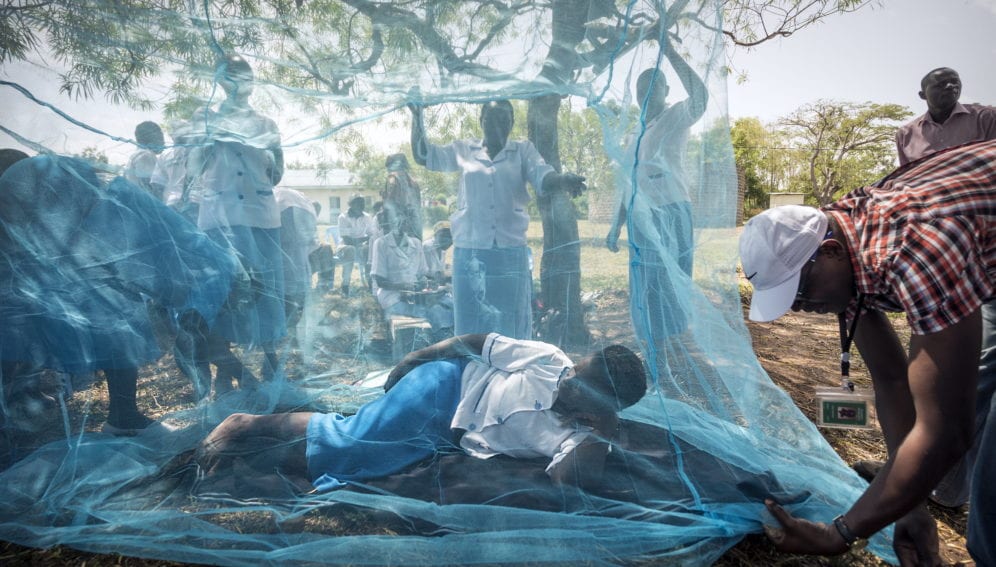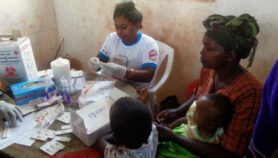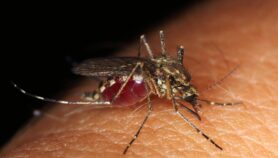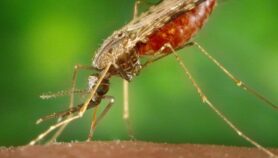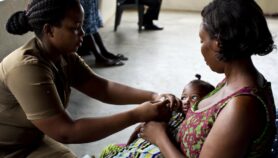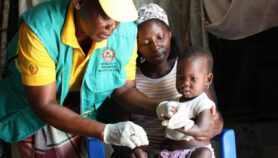Send to a friend
The details you provide on this page will not be used to send unsolicited email, and will not be sold to a 3rd party. See privacy policy.
[NAIROBI] Community-based interventions such as use of insecticide-treated bed nets help decrease new cases of malaria in Zanzibar’s health facilities by 94 per cent between 2003 and 2015, a study says.
Zanzibar, a semi-autonomous region of Tanzania with a population of about 1.4 million, aims to eliminate malaria by 2023, says the Zanzibar Malaria Elimination Programme.
But according to researchers, whether malaria elimination could be achieved in high-transmission areas including Zanzibar remains unknown, thus motivating them to explore the challenges and opportunities for meeting such a goal.
“This study shows greater impact, which in turn is thanks to better implementation with higher coverage and the fact that all tools for prevention, diagnosis and treatment were free of charge and thus fully accessible,” says Anders Bjorkman, the lead author of the study published in BMC Medicine last month (22 January).
“This study shows greater impact which in turn is thanks to better implementation with higher coverage.”
Anders Bjorkman, Karolinska Institutet
The researchers accessed data from nine cross-sectional household surveys conducted in May–June between 2003 and 2015 in two rural districts. They also used vital monthly data from 26 health facilities for the period between 1999 and 2015.
“Human biting rates [by mosquitoes] decreased by 98 per cent,” according to the findings reported in the journal. “The total [malaria] parasite load decreased over 1000-fold (99.9 per cent) between 2003 and 2015.”
Björkman, a senior professor at the Karolinska Institutet, Sweden, tells SciDev.Net that implementation with higher coverage of community-based interventions such as insecticide-treated bed nets and indoor residual spray are the leading factors in the fight against malaria in Zanzibar.
He attributes the success to the commitment of Zanzibar government, the National Malaria Elimination Programme and participation by community residents.
But Björkman adds that the mosquitoes have avoided control measures over the past years and, therefore, calls for a need to develop new strategies in order to win the fight against malaria and see its complete eradication in Zanzibar.
Anders says they are embarking on piloting new strategies such as outdoor traps, attracting and killing the outdoor mosquitoes and using mass and specially targeted drug administration to curtail the altered behaviour of mosquitoes.
Eliningaya Kweka, a vector biologist and an associate research professor at the Catholic University of Health and Allied Sciences, Tanzania, says that the study has demonstrated that community acceptability of strategies can play a major role in the malaria eradication in islands of Africa, and touts Zanzibar’s success as a model for the continent.But Andrew Githeko, chief research officer at Kenya Medical Research Institute, says that eradicating malaria in Sub-Saharan Africa is a challenge.
“It is well known that malaria eradication or elimination is feasible in islands,” says Githeko. “This is not the case for continental Africa.”
Kweka calls on African government to increase funding to boost surveillance, prevention and treatment of malaria.
This piece was produced by SciDev.Net’s Sub-Saharan Africa English desk.
References
Anders Bjorkman and others From high to low malaria transmission in Zanzibar—challenges and opportunities to achieve elimination (BMC Medicine, 22 January 2019)


